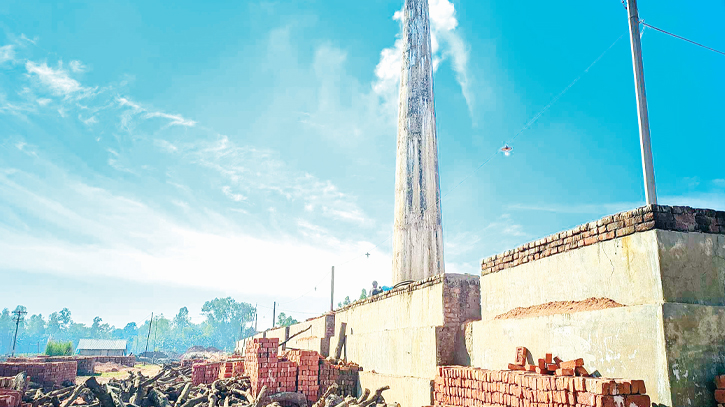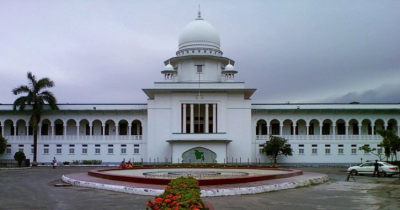
Photo : Messenger
The encroachment of over 200 illegal brick kilns in Gaibandha has not only wreaked havoc on the health of the local population but has also inflicted severe damage on the environment.
The brick production season in Gaibandha witnesses the rampant establishment of these illegal brick kilns in the locality, particularly on agricultural lands near the city, despite the presence of numerous pre-existing illegal brick kilns. Defying the regulations set by the Department of Environment, most of these brick kilns operate without the necessary permits, freely burning firewood.
Adding to the environmental concerns, these kilns avoid modern technology in favor of permanent chimneys ranging from 95 to 120 feet in height. The combustion of wood and the use of low-height drum chimneys lead to the emission of ample amounts of black smoke, posing a significant threat to public health.
Compounding the issue is the unwitting participation of many individuals who, in pursuit of quick cash, sell fertile soil from croplands to these brick kilns. This not only quickens environmental degradation but also jeopardizes the food security of the district.
Gaibandha district hosts more than 200 brick kilns spread across seven upazilas. Shockingly, only 14 of them have obtained official approval, with the district administration acknowledging the presence of 171. However, the unrestrained proliferation of new brick kilns each year often slips under the radar of the administration. Fertile cropland is sacrificed to supply soil to these brick kilns, resulting in once-thriving lands lying fallow. The extraction of fertile topsoil not only leaves these lands in poor condition but also compromises their water-holding capacity, affecting the surrounding areas.
Local farmers divulge that brick kiln owners initially strike deals with some farmers to acquire land for a substantial sum. After extracting soil from these lands, the water-holding capacity is compromised, rendering the surrounding lands unusable. Subsequently, other farmers follow suit, selling soil to brick kiln owners as their own plantations become barren.
The encroachment of brick kilns not only impacts the soil of cropland but also gives rise to severe environmental pollution. Kilns strategically placed between residential areas, main roads, and crop fields contribute to a decline in plant productivity. Furthermore, the productivity of most unpaved roads in the district is adversely affected.
Acknowledging the severity of the issue, Abdul Latif Haqqani, President of the District Brick Kiln Owners' Association, confessed to the operation of illegal brick kilns. He attributed their existence to the complications of new laws and challenges in obtaining approval.
Gaibandha District Commissioner, Kazi Nahid Rasul, underscored ongoing efforts to curb unauthorized brick kilns, emphasizing a phased closure to bring an end to this environmental menace.
Messenger/Siam/Shahin








